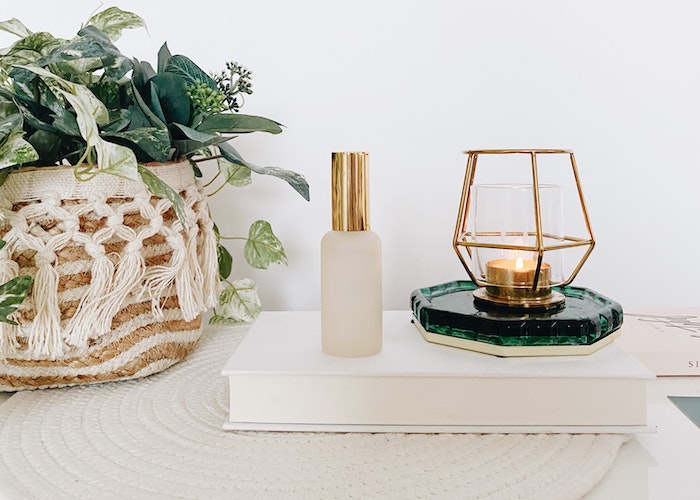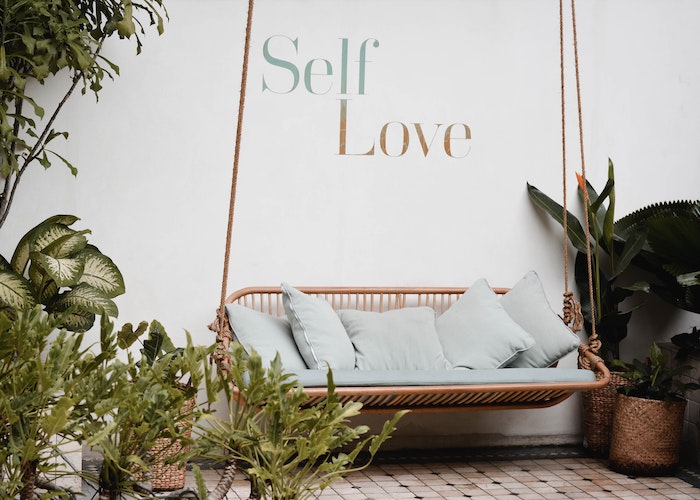How To Stop Treating Your Time Like Your Kitchen Junk Drawer

As a culture, we pride ourselves on productivity. We’re “life hacking” ourselves into robotic efficiency. More and more, we find our worth and identity based on our work. Even in our downtime, we are taught all the things we should be doing, even in a pandemic: Writing the next King Lear, getting a “quarantine body,” or mastering some new hobby. Creativity can be fulfilling and fun, movement is, in innumerable ways, beneficial for us, and sourdough can be absolutely delicious. When these things that are supposed to be leisure and low-pressure become methods to attain self-worth, however, they are damaging. They overwhelm us as much as expectations from work because everything is a measure of success—doubly so if we want to perform it on Instagram.
In the midst of a pandemic, and especially as we are slowly allowed to add normal things back into our lives, the knee-jerk reaction to rush in by adding more and more might be strong. Starting these three small practices can help you reclaim some of your own time and allow yourself to simply be.
Ask yourself one important question before saying “yes.”
It’s Mari Kondo’s world, and we’re just living in it—so you know about the idea of only saying yes to what sparks joy or is useful. You may have also heard the advice that if it’s not a “hell yes,” it’s a no — meaning, if you’re not super excited by an obligation, you should pass on it. The problem is, when there are so many things that feel like they could be a hell yes, or spark joy, or whatever you want to call it, you still run the risk of overcommitting.
When we immediately say yes to everything that comes our way, we are making compromises with our focus and energy. This spreads us too thin, making us unable to be present in any one moment. Eventually, this will eventually lead to burnout.
To resist overwhelm, ask yourself: How can I show up in the best possible way — and with the most energy? Like Kondo taught us, it isn’t just about getting more and more: It’s about having the bandwidth to see and appreciate what we have. Be a little more discerning with your commitments, and you’ll avoid burnout and ensure you have the energy to give each one your full focus.
Clear out your “time junk drawer.”
Ever opened up your kitchen junk drawer and found it completely overflowing with clutter? Your time sort of works the same way. Just like a physical junk drawer, you shove as much stuff into your calendar as possible until it becomes out of control and you can’t make sense for anything else.
Try tracking your time for a couple of days, like you would your spending. When you have your results, see what fills up hours of your free time and note how you felt during and after these activities. This is data, and there’s no need to do anything but notice it and learn from it.
As the saying goes, “Time you enjoyed wasting is not wasted time.” In the same manner, you’re not tracking your time to become some flawless version of your “best self.” You’re simply tracking it to see where it’s going and if that’s really how you want to spend it.
After the experiment, make a note of your junk drawer activities. Sometimes, they’re obvious. Sometimes, habits that seem like time wasters can serve a purpose. For example, scrolling Instagram for an hour when I’m avoiding writing does not feel good and is overall not aligned with my values. However, engaging with artists, writers, and friends who I love and care about on Instagram is a wonderful use of leisure time for me. Collect your data, then pay attention to what it teaches you. And stop filling up that time junk drawer.
Make a “top three” list every morning.
Each morning, list the top three things that would make today a productive day. What have I been putting off that I could work on today? What is essential? Once you have your list, make sure each item is specific: No vague to-do’s like “Apply for Jobs” or “Write a Medium Article.” Don’t set yourself up for failure with items that could take days. Don’t give yourself an assignment that you don’t know how to even start. Pick three specific, clearly laid out tasks that need to be done. Then assign them in a doable, non-critical way. Once you’ve written three things, put the pencil down. (Intentional living enthusiast Muchelle B has a great tutorial on this idea.)
As therapist Lisa Olivera writes, “Self-Compassion and Self-Accountability are wonderful dance partners.” At the end of each day, look at your checked off items and feel good about it. Let yourself celebrate these tiny victories. See how you have shown up for yourself. Then, do whatever it is you might find restful or fun. Nothing required, no work, no “shoulds.” Simply let yourself rest and enjoy yourself — no overwhelm needed.
Margaret Duncan is a medical student in St. Louis interested in narratives in everyday life, mental health, and everyone’s right to be creative. You can see more of her writing at Badarteveryday.com or on Instagram here.
Image via Pexels
Like this story? Follow The Financial Diet on Facebook, Instagram, and Twitter for daily tips and inspiration, and sign up for our email newsletter here.




